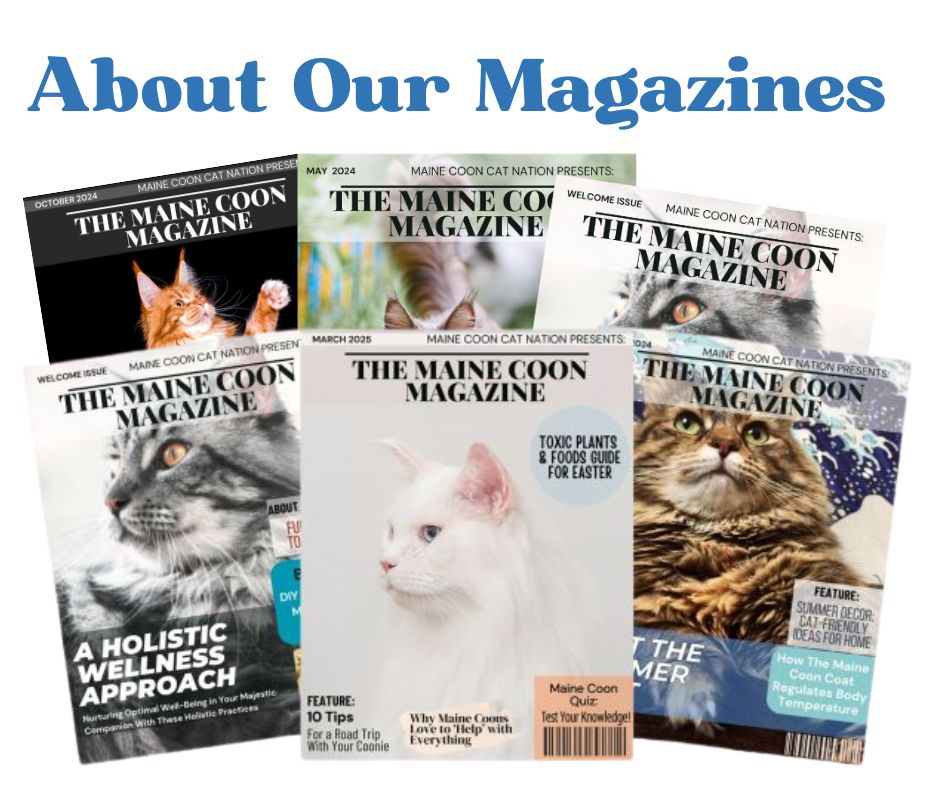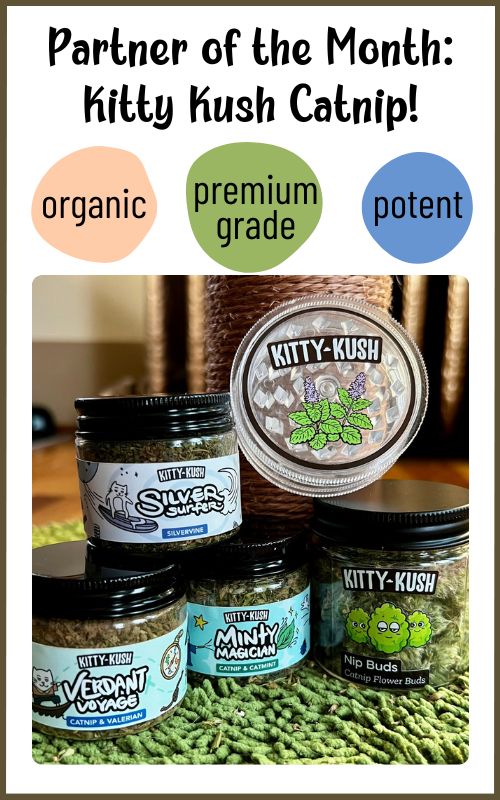- Home
- Behavior Problems
- Meowing at Night
Why Cats Meow at Night: Here’s What’s Going On
Anyone who’s ever had a cat knows that when they decide to sing the song of their people at 3 AM, there’s not much you can do - except maybe question your life choices. Sometimes it’s a mystery why cats meow at night!
It’s a tale as old as time. You’re tucked in, dreaming away, when suddenly, a dramatic solo echoes through the house.
Some felines do this once in a while, but others turn it into a full-blown habit. It’s confusing, exhausting, and makes you wonder if you’re missing something important.
That’s exactly what Gene and Paula from Austin are dealing with. Their 11-year-old Coonie, Mitzi, has recently started yowling in the wee hours. They’ve tried everything!
“Why Do Cats Meow at Night While We’re Trying to Sleep?”
by: Gene & Paula in Austin, TX
My wife Paula and I are at a loss with our 11-year-old Maine Coon, Mitzi. She’s always been a talkative cat, but lately, she’s taken things to a whole new level - meowing at night, and not just a little.
We’re talking hours of loud, drawn-out meows, yowls and yodels, usually peaking around 3 AM.
At first, we thought she might be hungry, so we started leaving out a little extra food. No change. Then we tried playing with her before bed to wear her out. Still meowing.
We even bought one of those fancy puzzle feeders to keep her busy, thinking maybe she was just bored. No luck.
Her vet says she’s in perfect health, so we’ve ruled out pain or medical issues. We also keep her litter box clean, and nothing in her routine has changed.
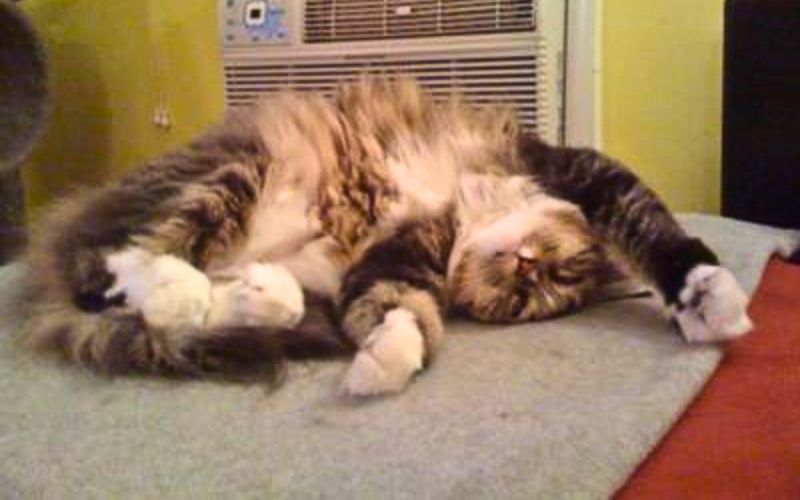
But every night, she starts up, and we eventually have to shut the bedroom door just to get some sleep.
And that makes us feel terrible! It feels like we’re ignoring her, but we truly don’t know what she wants.
Is she lonely? Is this an age thing? We’ve read that older cats sometimes get more vocal, but this feels extreme.
We’d really love to understand what’s going on so we can help Mitzi - and finally get a good night’s sleep again!
Reply:
I know how exhausting this can be! It’s frustrating when your furry alarm clock goes off at odd hours, and even worse when you don’t know why.
Alice went through a phase like this for a few years. She’d start up in the early hours, and there wasn’t much we could do but accept it - and close the bedroom door.
But knowing she was happy, loved, and had plenty of attention during the day made it easier to handle.
You’re not alone - plenty of pet parents deal with excessive nighttime meowing. It’s not a sign that you’re neglecting Mitzi or failing her in any way.
Figuring out why cats meow at night can take some trial and error, but there are ways to make things quieter:
Why Do Cats Meow at Night? 5 Top Reasons
1. Attention-Seeking
Some kitties just want company. If they’ve spent the day napping or alone, they may call out for interaction when the house is quiet.
What helps: Add more playtime during the day, keep a steady routine, and don’t reward late-night yowling with attention.

2. Hunger or Food-Related Behavior
Felines are naturally wired to be active around dawn and dusk. If their stomach growls before morning, they might wake you up to fix it.
What helps: A timed feeder can serve a small meal before the sun comes up. A bedtime snack can also keep hunger at bay.
3. Boredom or Extra Energy
An under-stimulated kitty may decide the best way to pass the time is by making some noise. This is especially common in indoor pets who don’t get enough mental or physical activity.
What helps: Try a longer play session before bed. Puzzle feeders, interactive toys, or a window perch with a view can keep them busy while you sleep.
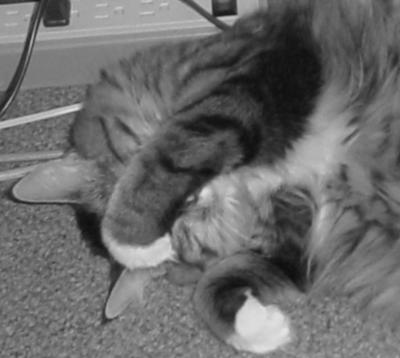
4. Aging and Cognitive Changes
Older Coonies may get confused or anxious when the house goes dark. This can lead to loud, restless behavior.
What helps: A soft nightlight, familiar scents (like a worn T-shirt), or gentle background noise can help them feel secure.
5. Habit & Reinforcement
If a kitty learns that yowling gets results - whether it’s food, attention, or an open door - they’ll keep doing it.
What helps: Stay consistent. If you give in sometimes, they’ll keep testing their luck. Ignore the noise, and over time, they’ll realize it doesn’t work.
Wondering why cats meow at night is something almost every pet parent has faced. The good news? Small changes can make a big difference!
Why Do Cats Vocalize More at Night? Instincts at Play
If your Coonie’s late-night howling feels personal, don’t take it that way - she’s just following instincts that go back thousands of years.
Felines are crepuscular, meaning they are naturally most active at dawn and dusk. In the wild, these are the best times to hunt, explore, and communicate with their group.
Even though indoor kitties don’t need to hunt for food, those instincts don’t just disappear.
If your Maine Coon starts yowling at 3 AM, her body is telling her it’s prime time for activity. She may be looking for food, companionship, or just something to do.
Another factor? Cats are excellent communicators. Unlike dogs, who mostly bark for attention, felines use a variety of sounds to express their needs.
A well-timed howl in the middle of the night might be your kitty’s way of saying, "Hey, I’m awake! Why aren’t you?"
It helps to understand that this behavior is hardwired. Rather than just trying to stop it, the key is to redirect that energy in a way that works for both of you.
What Can You Do?
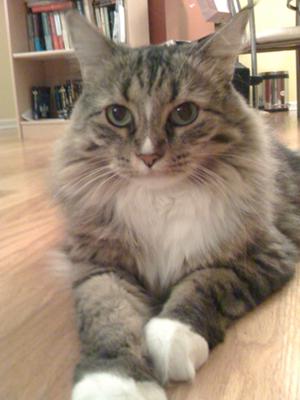
- Adjust the daily routine to meet their needs
- Provide plenty of mental stimulation and playtime.
- Use tools like timed feeders, calming sounds, and soft lighting.
- Be patient - changing habits takes time!
How to Train Your Cat for a Quieter Night
If your Coonie has figured out that yowling gets results, it’s time to reset expectations.
With patience and consistency, you can teach her that nighttime is for sleeping - not singing. Try this step-by-step approach:
Step 1: Ignore the noise completely - This is the hardest part. If you’ve been responding in any way (even to shush or scold), she’s learned that making noise gets your attention. For at least a week, don’t react at all—no talking, no eye contact, no getting up.
Step 2: Reward silence in the morning - Once the sun is up, reinforce quiet behavior. Offer breakfast, treats, or affection only when she’s calm. This helps her associate morning with positive attention.
Step 3: Adjust the daily schedule - A well-timed routine can work wonders. Try:
- Feeding later in the evening to keep her full overnight.
- Playing before bed to burn off extra energy.
- Using a slow feeder or timed dispenser so she doesn’t expect food from you at dawn.
It may take a couple of weeks, but with consistency, most cats will adjust. If your kitty is particularly stubborn, adding background noise (like a white noise machine or soft music) can also help break the habit.
Some kitties will always be a little chatty after dark, but with a few tweaks, most will settle down.
If your Coonie is happy, healthy, and well-loved, you're doing everything right!
Top of Why Do Cats Meow at Night?
« Back to Behavior Issues
Recent Articles
-
New Memory Lane Posts!
Apr 22, 25 07:05 PM
Meet our stunning silver and smoke Maine Coons, from fluffy kittens to regal adults. These beauties were all submitted by our readers in 2023 & 2024!
Meet Bertie and Telulah: A Delightful Maine Coon M… -
Memory Lane Success Stories
Apr 21, 25 03:25 PM
As we continue to stroll down Memory Lane, today we feature some of our 2023 Coonies who have charmed their way into the hearts of their families. From Jojo, the clever cameo who still amazes his owne… -
Memory Lane Features
Apr 19, 25 12:12 AM
Perfect for Flashback Friday we have two fresh updates today!
Falling In Love With Georgina: Georgina is a stunning Maine Coon from Australia with royal energy, dramatic coloring, and a personality th…
